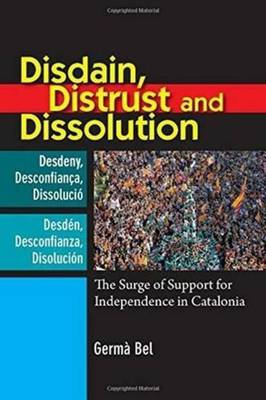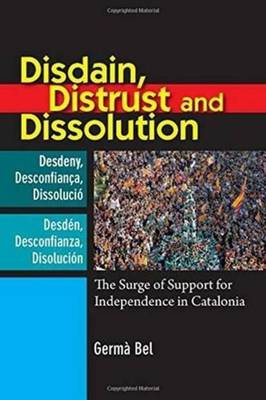
- Afhalen na 1 uur in een winkel met voorraad
- Gratis thuislevering in België vanaf € 30
- Ruim aanbod met 7 miljoen producten
- Afhalen na 1 uur in een winkel met voorraad
- Gratis thuislevering in België vanaf € 30
- Ruim aanbod met 7 miljoen producten
Zoeken
€ 132,95
+ 265 punten
Omschrijving
Support for independence in Catalonia has increased rapidly over the past decade. This dynamic is the result of Catalans in political, economic and academic fields who no longer believe that the necessary reform of Spanish government is a viable option in terms of achieving an acceptable arrangement for Catalonia to stay within the Spanish state. Rejecting assimilation on the basis that a uni-national state is unworkable for a host of structural reasons, not least the lack of reform progress to date, secession is viewed as the preferred choice for the betterment of the region's people. This book dissects the problems of the relationship between Catalonia and Spain. The author investigates the dynamics of conflict between opposing groups, the resulting effects on inter-territorial distrust, and the impact on the functioning of the Spanish state as a whole. These conflictual issues are projected onto areas of public policy that reflect basic motivations of rising public support for independence: national identity and sense of community (language and education policy); economic viability (fiscal relations with the state); and future opportunities in a global world (issues of infrastructure, especially transport). The overwhelming conclusion is that the accumulation of mutual distrust between the opposing parties is a major obstacle to the functioning of the Spanish state. Mutual perception of unfairness and lack of trust is an impediment to the design and functioning of future shared projects -- and without agreement and engagement there is no benefit to either party, to the detriment of Spain and its peoples. Published in association with the Canada Blanch Centre for Contemporary Spanish Studies/Catalan Observatory.
Specificaties
Betrokkenen
- Auteur(s):
- Uitgeverij:
Inhoud
- Aantal bladzijden:
- 224
- Taal:
- Engels
- Reeks:
Eigenschappen
- Productcode (EAN):
- 9781845197049
- Verschijningsdatum:
- 15/01/2015
- Uitvoering:
- Hardcover
- Formaat:
- Genaaid
- Afmetingen:
- 155 mm x 234 mm
- Gewicht:
- 408 g

Alleen bij Standaard Boekhandel
+ 265 punten op je klantenkaart van Standaard Boekhandel
Beoordelingen
We publiceren alleen reviews die voldoen aan de voorwaarden voor reviews. Bekijk onze voorwaarden voor reviews.











